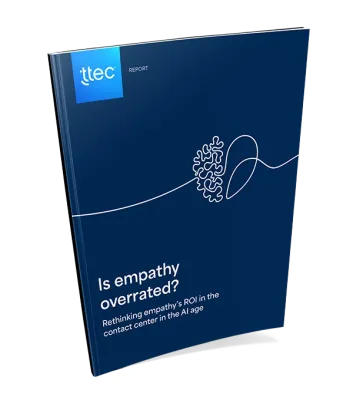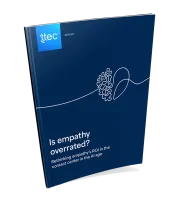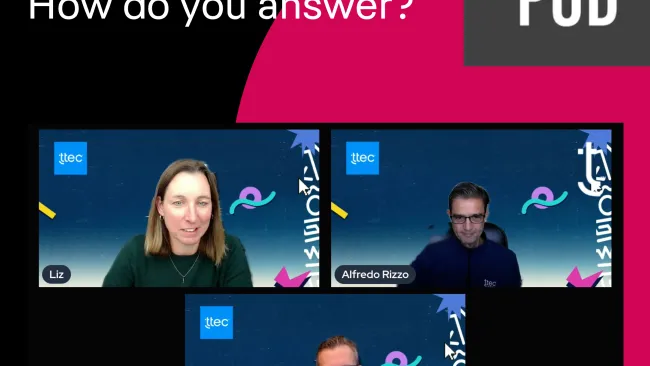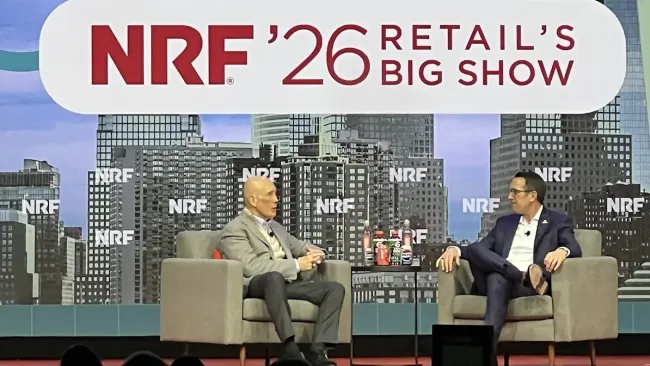“You dial the number, navigate the recorded instructions. And if you’re lucky, there’s a person — a real person — at the end of the line.”
That’s how “CBS News Sunday Morning” host Jane Pauley opened this week’s segment that covered how AI is impacting customer service in contact centers. Her introduction was designed to be relatable to the 5.2 million viewers tuned in to the No. 1 Sunday morning news show.
To set the hook and ensure viewers didn’t switch over to another channel, a series of videos from disgruntled consumers and podcasters brought to life just how frustrating it is to wait on hold, get transferred to another person, or the worst insult: “All lines are busy. Please call back at another time.”
Contact center associates featured on the show were empathetic. They accept that their interactions often involve agitated people seeking to vent frustration, subjecting them to treatment that borders on abuse. The associates believe they hold the power to pull a 180, to solve problems, and end a call with resolution that transforms a customer into a cheerful, grateful being.
What these four contact center associates don’t believe, however, is that AI can play a role in improving the customer experience.
Ouch.
While that was the opinion of just four contact center associates working in healthcare and nonprofits, the CBS program’s popularity, capturing a full 50% of Sunday morning TV eyeballs, means that viewers’ skepticism about AI just got reinforced.
AI the augmenter
How unfortunate. In reality, AI deployed with understanding of customer intents and the entire journey helps to enhance the experience.
“We’re definitely going to see AI augmenting capabilities, skills, what people can do, improve productivity, and reduce effort in the customer journey,” said James Bednar, vice president, head of product innovation, TTEC, during a recent LinkedIn webinar, “AI Mythbusters for CX.”
AI-enabled bots:
- Are always available (no more extended hold time or “call back later”)
- Reliably handle the customer identification verification step
- Efficiently complete simple interactions such as password resets and bank balance inquiries
- Free up live associates to handle more complex calls
And, perhaps most compelling, is the role AI plays when balanced with live contact center associates to bring humanity to the experience. AI can be “a bit of a blast shield,” Anthony Scodary, co-founder of AI voice bot company Gridspace, told CBS News.
He explained that AI bots can take a customer interaction to a certain point and smoothly hand off to a live associate who then comes in as the “hero” who resolves the issue. Automation and technology like AI “enables people to do the stuff that people are best at,” he said on the broadcast.
For team leads, there is a real opportunity here to educate — indeed demonstrate — to contact center associates how AI can make their jobs even better. Greater success translates to job satisfaction and improved retention.
This is not the time to wait
TTEC’s Bednar cautioned against a wait-and-see approach. The pace at which AI is moving obliges companies to start on the path of assessing their AI readiness and identifying use cases.
Knowledge-assist is a great use case in the contact center because AI can consume the total universe of knowledge in real time and make it easy for associates to access and use that knowledge. “That’s the holy grail of knowledge empowerment,” he said. “Associates love it and don’t want to stop using it.”
Analytics is another compelling use case because it’s more mature and low risk. AI-driven conversational analytics, speech analytics, and other analytics that provide insights to customer conversations are invaluable because they illuminate new ways to improve the experience.
“It all starts with data,” Bednar said. It’s essential to ensure that your library of knowledge is ready, that it is as easily consumable by AI as it is by a human being. Companies will discover there’s work to do on their foundational data to get it ready.














